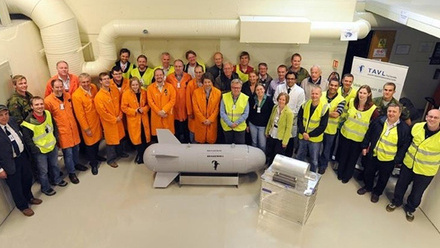Overview
US efforts to end the war in Ukraine have contributed to high levels of political uncertainty in energy markets, particularly in Europe. What might be agreed in a ceasefire agreement or the fallout of a collapse in talks will have profound implications for energy security. Energy has the potential to drive a further wedge between allies, as Europe seeks to end use of Russian oil and gas but the US considers investment opportunities which depend on Russian access to European markets. And, conversely, military decisions are featuring in the geography of the emergent energy system, with security agencies across Europe and beyond intervening in the selection of contractors and questioning the implications of situating infrastructure offshore.
With the UK and the International Energy Agency’s Future of Energy Security Summit coming up on 24-25 April, join RUSI for an afternoon discussing the trends in negotiations which will set the tone for European energy security and global energy markets for the rest of the decade, and how the UK and the rest Europe might respond.
Programme
13:30-13:50 Opening Remarks and Keynote Address
13:30-13:35 Opening Remarks
13:35-13:50 Sophie Westlake, Deputy Director of the International Energy Unit
13:50 - 15:00 Panel One: Energy and the Ceasefire
What might happen in the next phase of the war in Ukraine and how will energy feature, whether as a bargaining chip in negotiations or a pressure point as negotiations fall apart?
Chair: Jonathan Eyal, Associate Director, RUSI
Speakers
Professor Michael Clarke, Visiting Professor, King’s College London, former Director General, RUSI
Sophie Westlake, Deputy Director of the International Energy Unit
Dr Aura Sabadus, Associate Fellow, RUSI
Key questions:
- What are Russia’s priorities in negotiations and what will it demand in terms of sanctions and access to European energy markets?
- How important is energy to the US administration and how is it calculating its own interests?
- What will the UK and Europe’s red lines be on energy and how can they make their voices heard?
- What might happen if negotiations collapse? Will the Trump administration be more aggressive targeting Russian energy and hold less regard for international ramifications, or be less aggressive - in line with Trump’s approach to Russia in the past?
- How can the UK and Europe protect their energy systems during this period of uncertainty?
15:00-15:30 Coffee Break
15:30 - 17:00 Panel Two: The Future of European Energy Security
How should Europe respond to the challenge from Russia in the context of constrained government budgets and the impact of high energy prices on the cost of living and industry, including defence? What can the UK and EU do together?
15:30-15:50 Opening address: Will Russian gas return to Europe?
Dr Jack Sharples, Senior Research Fellow, Oxford Institute for Energy Studies
15:50-17:00 Panel discussion
Chair: Dan Marks, Research Fellow in Energy Security, RUSI
Speakers
Professor Amelia Hadfield, Head of Politics and International Relations, University of Surrey
Marc Hedin, Head of Research, Western Europe and India, Aurora RE
Dr Jack Sharples, Senior Research Fellow, Oxford Institute for Energy Studies
Dr Sidharth Kaushal, Senior Research Fellow, RUSI
Key questions:
- How should the UK and Europe respond to uncertainty in global oil and gas markets and Russian supply to Europe?
- Is accelerating the transition away from oil and gas possible given cost of living pressures, the need for re-industrialisation, and concern about the sourcing of clean energy equipment? Is there any realistic alternative?
- What are the implications of Russian aggression for the defence of energy infrastructure, particularly offshore, in the UK and EU? How are regulators and energy companies responding to it?



